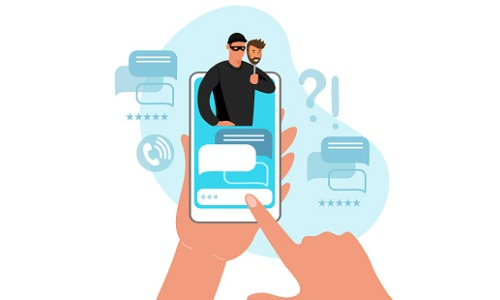
Every day, thousands of people fall victim to fraudulent calls, emails and texts from scammers pretending to be your bank. Financial services are the most impersonated industry in phishing scams, according to a report from the American Bankers Association (ABA).
Scammers will pretend to be from financial services, such as banks or government entities, to get sensitive information from you. Fake websites and emails claiming to be from financial service providers are popular phishing attempts. If you think that call, text or email you received might be a scam, here are some things to look out for.
- High-pressure language: If you receive a call, text or an email using a sense of urgency and scare tactics by telling you to “act now,” it is likely a scam. Most phishing emails are sent during weekdays. Be aware that Mondays and Tuesdays are the most popular days you might get a scam email.
- Sensitive information: Scammers will often ask you for important information. Never give out your full social security number or your PIN to anyone. If you have been sent a login verification code through text to one your online banking or social media profile, never share that code. If you are a customer of Central Bank, we never ask you for this information.
- Grammar: An easy way to spot a scam is by looking at the grammar that is used. Be on the lookout for incorrect or broken sentences, unprofessional language, and typos.
- Attachments: Scams often include email attachments and suspicious links to websites. Microsoft and Facebook are the most copied companies by scammers. Do not click any links, or open attachments from a sender you don’t know. These links and attachments can download malware onto your device and crash your system, obtain your personal information, and send spam from your address.
To protect yourself, here is what you can do to prevent scammers from stealing your information:
- Setup card alerts and use card lock to protect your cards.
- Use random and complex passwords.
- Set up multi-factor authentication for added security.
- Verify messages or emails you receive - if you’re a customer of Central Bank, contact us to make sure it's really us contacting you.
- Keep your browser up-to-date with the latest software like virus protection and malware alerts.
In the unfortunate event you do get scammed, contact us immediately to let us know what happened and what information might have been shared. We are always here to help you stay safe and informed.